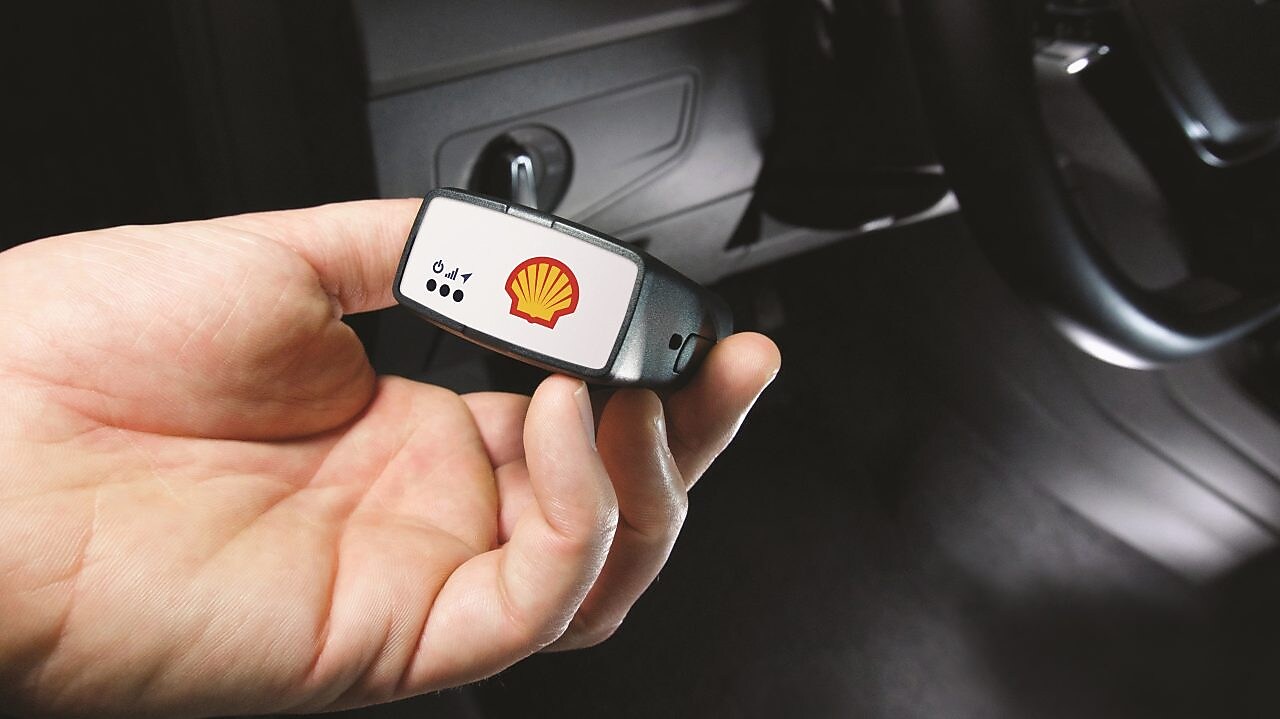
Shell Fleet Solutions Q4 Trends Report
Fleet maintenance doesn’t have to be complicated. Discover how to sustain the life of your fleet while saving time and money.
Letter from the Editor

Happy New Year! | hope everyone had a relaxing holiday and is feeling optimistic about the year ahead. As we look back at the last quarter of 2022 and forward to 2023, it's more important than ever to prioritize your fleet's maintenance needs to help get your operations in order. Fluctuating gas prices, the seemingly ever-present supply chain issues, and staffing shortages remain a cause of concern for fleet operators. Fortunately, Shell Fleet Solutions has a suite of tools to help keep your vehicles on the road that can directly benefit your overall operations and help your fleet efficiency, regardless of the uncertain circumstances we may face.
Shell Fleet Maintenance Hub is one of those tools — a digital platform that enables fleet customers of all sizes to better manage and streamline fleet maintenance. With its ease of use, seamlessly prep your vehicles for potentially harsh road conditions — a primary concern in these colder months.
Many managers are missing key datapoints when relying on manual processes to service fleets, whereas Shell Fleet Maintenance Hub can help organize fleet maintenance — saving both time and money. Additionally, it allows fleet managers to see the total cost of ownership for fleets while providing Shell-negotiated discounts at over 25,000 service shops, which have saved customers 26%" on common services and labor with special upfront pricing.
Furthermore, combining your fleet maintenance program with a telematics solution like Shell Telematics will work to provide further insights to help keep your drivers safer, optimize routes, and in turn, help keep your vehicles on the road.
As you dive into the year ahead, we hope you keep Shell Fleet Solutions in mind as a valued consultant for all your business needs. Thank you for trusting us to help keep your fleet moving efficiently.
Sincerely,
Andrea Brecka
Vice President and General Manager, Fleet Solutions North America, Shell
Fleet Safety Spotlight:
In a recent fleet study conducted by Work Truck’s sister publication, Heavy Duty Trucking, respondents noted similar challenges and needs when it came to safety and their overall fleet operating systems. “In a long list of potential safety strategies, the top five answers for light-duty and medium-duty fleets were well-maintained vehicles, written safety policies and procedures, driver training, stricter driver hiring standards, and a focus on safety culture.”
When it came to vehicle and liability insurance costs, not one truck fleet respondent noted costs decreasing, which poses the question of what is driving up insurance prices and what can fleet operators do to mitigate the costs? The top trends we are continuing to see come down to vehicle technology and proper safety training.
One way fleet managers are working to keep their fleets safe is via telematics. FleetNews reported on a study of fleets in the UK, as part of the Arval Mobility Observatory Barometer, that around 41% of respondents said they used telematics to locate vehicles and improve security, 34% reported on usage to improve driver safety, and 27% to reduce fleet total costs.

Sources:
WorkTruck
2022 Work Truck Safety Study: Rising Costs & Safety Focus
Links will direct user away from Shell document onto a third-party site. Shell is not endorsing the opinions, statement or practices suggested in the articles of interest. To learn more about Work Truck, visit www.worktruckonline.com..
Fleet News
Telematics Adoption Driven by Security and Safety
Links will direct user away from Shell document onto a third-party site. Shell is not endorsing the opinions, statement or practices suggested in the articles of interest. To learn more about Fleet News, visit www.fleetnews.co.uk.
Are you getting the most out of your data? Learn more about how to keep drivers safe by managing working hours, improving schedules and monitoring driving behavior with Shell Telematics.
More News:

FleetOwner: What Can Fleets Expect in 2023?
What can fleets expect in 2023? As supply chain disruptions continue, it is unlikely that fleets will be able to acquire all the trucks they want to order, forcing the industry to continue to operate beyond normal cycles. Furthermore, fleets will continue to deal with decisions around electrification and when they should invest in zero-emissions vehicles. FleetOwner digs into insights and predictions.
Links will direct user away from Shell document onto a third-party site. Shell is not endorsing the opinions, statement or practices suggested in the articles of interest. To learn more about FleetOwner, visit www.fleetowner.com.

Automotive Fleet: Fleet Demand Expected to Exceed Vehicle Availability in CY-2023
In the weekly video series, State of the Fleet Industry, Mike Antich, Editor of Automotive Fleet, shares his recent conversations with fleet managers about anticipated vehicle accessibility in the upcoming years. While it is predicted that vehicle availability will incrementally increase in calendar year 2023, fleet managers are anticipating that this same good news will be partially offset by the fact that the total end user fleet demand will continue to exceed vehicle availability. One fleet manager shared his predicted forecast: "While today's sourcing situation is better, many fleets continue to have allocations well below their replacement needs. This is causing units to carry over into the next model-year ordering, which, despite the improvements in availability, guarantees that today's sourcing constraints will persist for another year or two." Tune in to learn more about potential solutions to help offset this.
Links will direct user away from Shell document onto a third-party site. Shell is not endorsing the opinions, statement or practices suggested in the articles of interest. To learn more about Automotive Fleet, visit www.automotive-fleet.com.

Charged Fleet: How to Calculate EV vs. ICE Vehicle Cost Per Mile
The transition toward electric vehicles (EVS) is a hot topic in the industry, but when is it the best time to integrate EVs into your fleet? John Ellis and Chris Brown with Charged Fleet recently tackled that question by comparing two medium-duty vans. In their article, they provide a formula for fleet managers to compare their ICE vehicles against an EV model of similar make. These calculations will be beneficial when deciding to make the switch from ICE to EVs. What they found was noticeable savings for EV fleets. "Calculating the cost per mile for a fleet van that drives 15,000 miles per year, the total cost for the E-Transit would be $1,200 or $1,650, while gas-powered Transit T-150 would cost $3,750. Driving the E-Transit would result in savings of $2,550 or $2,100."
Links will direct user away from Shell document onto a third-party site. Shell is not endorsing the opinions, statement or practices suggested in the articles of interest. To learn more about Charged Fleet, visit www.chargedfleet.com

Convenience and savings
Shell Fleet Solutions allows customers to manage their entire fleet's maintenance needs using a comprehensive online dashboard. By scheduling service through the Hub, customers gain access to discounted fleet pricing at 25,000+ shops across the United States. Get maintenance alerts, schedule service, and gain access to discounted fleet pricing at participating shops through the Shell Fleet Maintenance Hub. Customers saved an average of 26%* on common services and labor with special upfront pricing and fleet savings.
Request a demo today to learn how Shell Fleet Maintenance Hub can help streamline your fleet operations and help save on maintenance and repair costs, providing you with a digital platform that makes it easy to schedule service and gain access to discounted fleet pricing at over 25,000 shops across the U.S.
*Aggregated data of global Shell Telematics customers that used service for 1 year or more with Shell Payment Card integration and 100-mile trip duration of multi-purpose vehicles. Results may vary by fleet type, size. vehicle type, timing, and geography.


